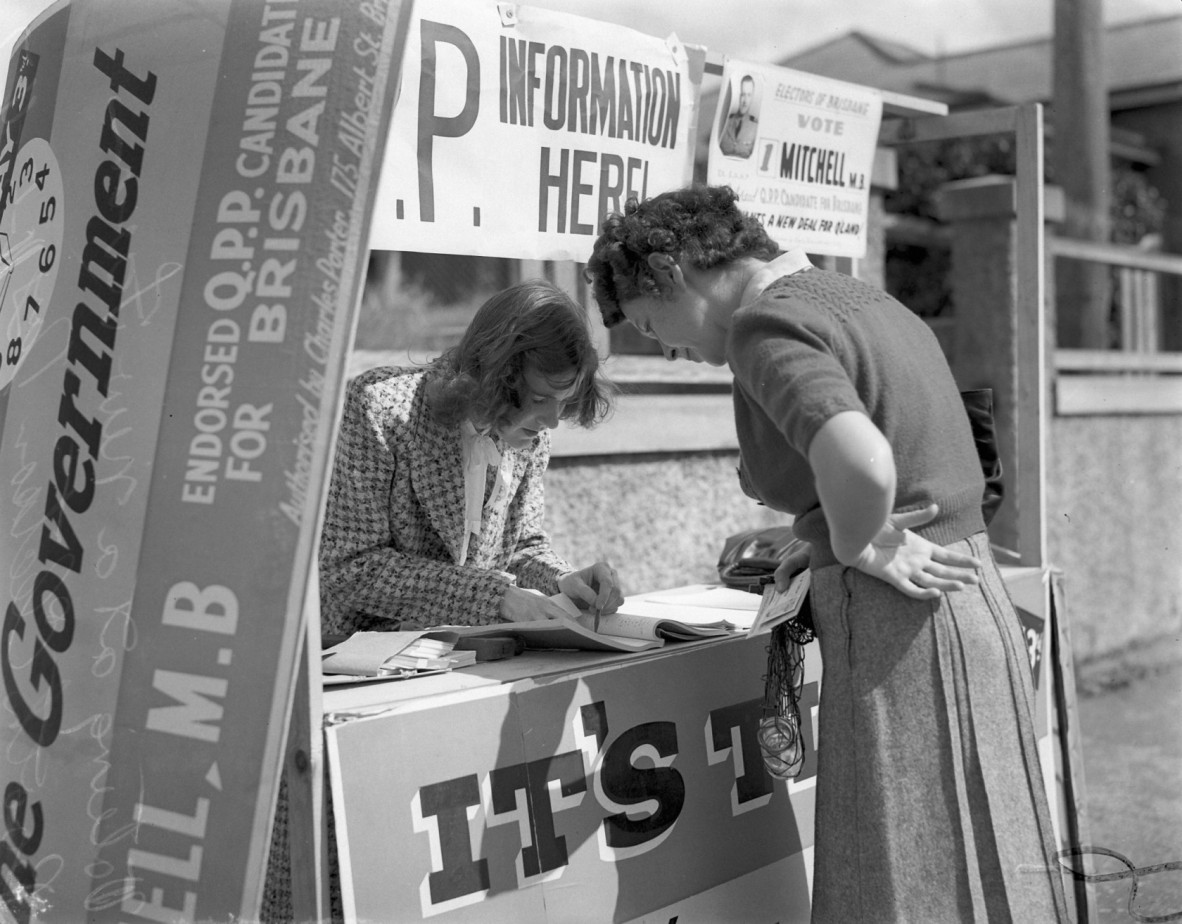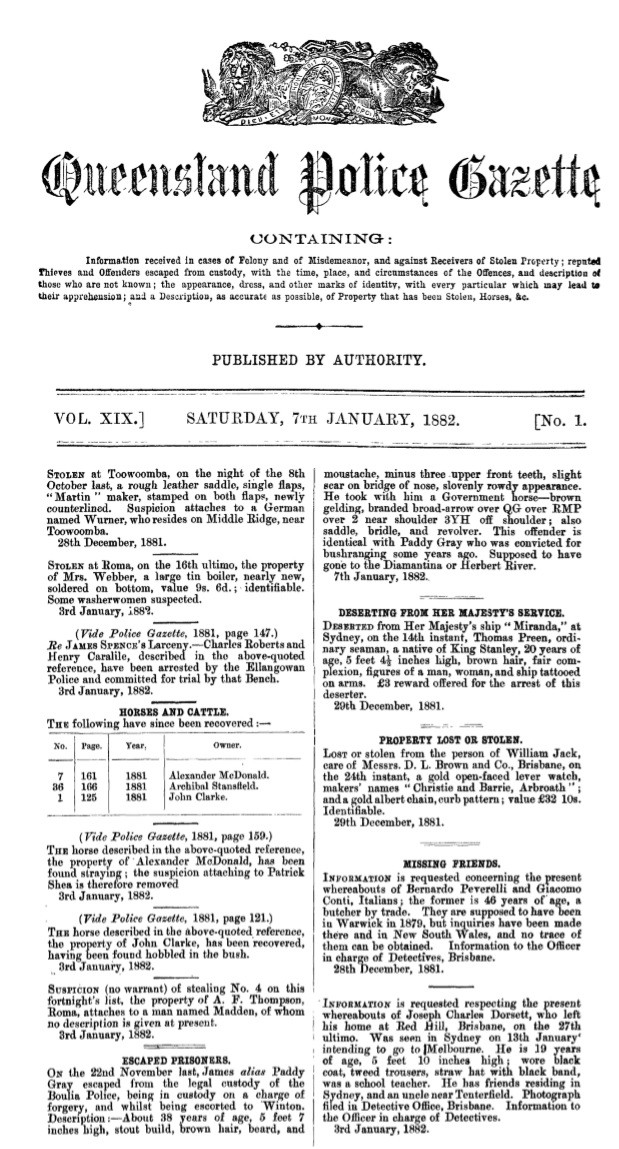Using electoral rolls and police gazettes in your family history research.
By Katy Roberts, Library Technician, Information Services | 7 August 2020
To locate your forebears and gain a picture of the life they lived, you will need to search through many different resources. Some of these resources, like electoral rolls and police gazettes, can provide useful ways of tracing your ancestors through time and place.
Electoral rolls
Electoral rolls contain valuable information about your ancestor’s life including:
- residential addresses
- occupations, which were included on electoral rolls until 1984
- land holdings
- status, as men had to be wealthy to be entitled to vote in the 19th Century, and those who owned land in more than one electorate could vote in each place.
Legislation about the right to vote changed as society changed, with women gaining the right to vote in Australian states and territories between 1894 and 1908. Voting become compulsory for those aged over 21 in 1925, and aged over 18 in 1973. Australian Aboriginal people gained the right to vote in 1962.

Voting at a New Farm booth election day, Brisbane, 1947; 28118 Sunday Truth and Sunday Sun Newspaper Photographic Negatives, John Oxley Library, State Library of Queensland, Image number: 28118-0001-1305
Electoral rolls for early years are organised by electoral boundary and then surnames listed alphabetically by subdivisions within the electorate. Later they are organised alphabetically within the electoral division.
The latest Commonwealth rolls list everyone alphabetically within the State / Territory, which makes for a much speedier search. By cross-referencing surnames, you can locate other family members living at the same address, however searching for other inhabitants at one address can be tricky if the surname isn’t known.

Example of information on a Queensland state electoral roll 1896.
Police gazettes
Police Gazettes were used within the police force to keep up-to-date with current policing, and can contain information about:
- crimes and criminals
- men who have not paid maintenance or have deserted their families
- appointments, promotions and resignations within the police force
- inquests
- reports on missing friends and relatives.
This can be a good resource if you really have ‘lost’ someone.
And the well-behaved citizen could still gain a mention in a police gazette. Perhaps your ancestor had a crime committed against them? Criminal activities like theft, arson and assault were reported in police gazettes.

Queensland police gazette, 7 January 1882, p.21
Early police gazettes contain physical descriptions of wanted people, with some photographs accompanying the description as early as 1897.
Example of information from 1883 Queensland police gazette.
Wanted
“Peter Reilly is charged, on warrant issued by the Brisbane Bench, with deserting his wife Jane, Sherwood, on the 8th instant. Description: - An Irishman, about 55 years of age, 5 feet 8 inches high, slender build, short thin whiskers turning grey, dark-brown hair, round-shouldered, a farmer; wore brown overcoat, dark tweed trousers, striped Crimean shirt, grey felt hat, elastic-side boots. 13th March 1883.”
Accessing electoral rolls and police gazettes
State Library holds electoral rolls for all Australian states and territories, although the dates available may vary. Electoral rolls for New Zealand are also held here. Ancestry Library Edition includes electoral rolls for many countries, including USA and UK.
Police gazettes for Queensland, New South Wales, South Australia, Tasmania, and Victoria are available at State Library in different formats with a number of indexes to make the search easier.
Check out our family history research guides to learn more about electoral rolls and police gazettes, and what’s held at State Library.
Contact us for help tracing your ancestors using these resources.
More information
Family history month - /familyhistorymonth
Family history research guides - /collections/family-history/family-history-research-guides
One Search - http://onesearch.slq.qld.gov.au/
Ask us - services/ask-librarian
Comments
Your email address will not be published.
We welcome relevant, respectful comments.